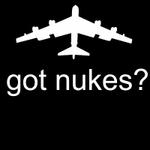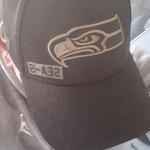@Jedimindtricks @Glünggi @nickellodeon @Sersch etc.
Das Problem liegt auch in der Auswahl der Verhandelspartner.
Niemand weiss so genau wer allles im Hohen Verwaltungsrat sitzt, dem angeblich wichtigsten "Oppositionsbündnis", gebildet in Riad.
Also Ahrar al sham sind nicht dabei, aber paar andere Rebellenvertreter,
Mohammed Alloush ist wichtiger Sprecher, dann sind SNC dabei und angeblich NCB, wobei ja Haitham Manna ausgestiegen ist weil wichtige Kurdenparteien nicht eingeladen wurden.
Eine zweite Delegation aus unabhängigen und innersyrischen »patriotischen« Oppositionsgruppen, blieb von offizieller Seite weitgehend unbeachtet. »Grundsätzlich ist unsere Teilnahme akzeptiert«, sagte Haitham Manna, der Sprecher der Delegation, die sich den Namen »Demokratische Säkulare Liste für Syrien« gegeben hat. Allerdings habe man von ihnen verlangt, sechs Vertreter von der Liste zu streichen. »Ohne meine Freunde werde ich nicht an den Gesprächen teilnehmen«, sagte Manna gegenüber »nd«.
Alle Gruppen der Liste unterstützten diese Haltung. Bei den sechs Delegierten handele es sich um fünf syrische Kurden, darunter vier Frauen, und einen Turkmenen, deren Teilnahme von der Türkei beanstandet wurde. »Das ist unakzeptabel.« In der Riad-Delegation seien für die »Islamische Armee« Leute, sagte Manna unter Verweis auf zwei Milizen, die von den Regierungen Syriens, Russland und Irans, vor allem aber von vielen Syrern als Terrororganisationen eingestuft werden.
http://www.neues-deutschland.de/artikel/1000644.syrien-verhandlungen-unterbrochen.htmlStimmen die von sämtlichen Gruppen Niederlegung der Waffen verlangen sind nicht so gern gesehen.
Nov.2015
Haytham Manna betonte, die Lösung der syrischen Krise könne nur von den Syrern vorgenommen werden und das heiße auch, Gespräche mit allen Beteiligten, außer den islamistischen Radikalen, zu führen. Ein wichtiger Bestandteil für den Frieden in Syrien sei die Beendigung der Anwesenheit der radikalen Islamisten im Lande. Über 60.000 islamistische Fremdenlegionäre kämpfen gegen Sold in Syrien. Sie müssten das Land verlassen, ebenso wie alle anderen ausländischen Kräfte.
Dass es Differenzen darüber gibt, ob Assad Teil der Verhandlungen sein soll oder nicht, war auch Haytham Manna bekannt. Eindringlich argumentierte er, die Demokratisierung Syriens hänge nicht von einer Person ab, es sei ein langer Prozess zur Herausbildung einer demokratischen Zivilgesellschaft in Syrien, die nicht an der Person von Assad festgemacht werden dürfe. Frieden heiße auch, Gespräche mit Vertretern der syrischen Regierung zu führen.
http://www.wolfgang-gehrcke.de/de/article/1456.frieden-in-syrien-kann-es-nur-gewaltfrei-geben.htmlhttps://www.freitag.de/autoren/lutz-herden/zu-viele-lose-endenEs gibt ein paar Dinge, die Umsetzung von Friedensplan so schwierig machen.
Erstens, die gefährlichsten Konfliktparteien, also IS, dann Nusra, Ahrar al Sham, etc. werden an keinen Verhandlungstisch kommen, weil sie das gar nicht wollen. ihr Ziel (Kalifat) ist nicht verhandelbar.
Zweitens, Verhinderung von Teilnahme der PYD, Kurdenparteien, ist ein kompletter Witz, werden doch Kurdenkämpfer geschätzt und gefördert.
Drittens, auch andere innersyrische Oppositionen gehen nebst dominantem SNC völlig unter.
Viertens, erstes Mal ist islamistische Rebellengruppe mitvertreten, mit Mohammed Alloush als Sprachrohr. sie sind wirklich nicht moderat, werden trotzdem als moderate islamistische Verbände bezeichnet. Da beissen sich schon zwei Wörter.
Fünftens, Assad ist auch der moderaten Opposition gegenüber nicht bereit, Kompromisse zu machen
Interview mit Mohammed Alloush
The 45-year-old political chief of the Army of Islam was the cousin and brother-in-law of the group’s
founder, Zahran Alloush, who was killed in a government air strike near Damascus in December.
Alloush, who has a degree in Islamic Studies and worked in publishing in Saudi Arabia until the war began five years ago, said that if Assad is removed the opposition wants elections in Syria.
http://www.thearabweekly.com/pdf/2016/02/12-02/p02.pdfDas sind nun mal Wölfe im Schafpelz, und kriegen viel zu viel Boden.
Zahran Alloush hat die Teilnahme am politischen Prozess vorangetrieben, er war ein Pragmatiker, wer weiss was sein Cousin draufhat, Zahran war beliebt weil er direkt an der Front agierte, sein Nachfolger ist Sheikh Abu Humam Bouidani,
das wieder ein
Alloush, auch wenns nur ein Cousin ist, als Vertreter für Jaysh al-Islam eingesetzt wird, ist typisch.
The Death of Zahran Alloush
Posted by Aron Lund on Friday, December 25th, 2015
..
About half an hour ago, at 21.40 Syrian time, the online news agency Sada al-Tawhid, which is aligned with the Islam Army, stated on Twitter that Zahran Alloush is dead and has been succeeded by Sheikh Abu Humam Bouidani. In other words, it would seem that Zahran Alloush is in fact dead.
Who Was Zahran Alloush?
Mohammed Zahran Alloush (1971-2015), also known as Abu Abdullah, was a salafi activist from Douma, a town east of Damascus in the Ghouta region. His father, Abdullah Alloush, is a salafi theologian resident in Saudi Arabia.
..
But the methods that Alloush used to bring stability to the Eastern Ghouta were not pretty.
..
While Alloush was an unabashedly sectarian Islamist, inspired by Saudi Arabia’s Wahhabi establishment, he was also pragmatic enough to maneuver his way through Syrian rebel politics and its shifting alliances. In the past, he threatened non-Sunni Muslim religious groups, referring to Alawites and Shia Muslims as ”filth” that would be cleansed from Syria. He condemned democracy and pronounced himself in favor of a Sunni Islamic theocracy, where sharia law would be applied in the fullest. But in the past year, perhaps under pressure from his foreign supporters, Alloush began to try to polish his image and gain acceptance in the West. His last interview, with a female Christian Syrian reporter working for the U.S. online journal The Daily Beast, was a good example of this. Alloush folded back his fangs and tried to come off as a constructive, responsible centrist, an anti-terrorist ally, and an all-around gentleman. You know, the kind you’d like to see in a coalition government.
http://www.joshualandis.com/blog/death-of-zahran-alloush-by-aron-lund/ (Archiv-Version vom 14.02.2016)Riyadh, Rumeilan, and Damascus: All You Need to Know About Syria’s Opposition Conferences
..
The Armed Groups: Few, but Important
As recently as two years ago, in the lead-up to the 2014 Geneva talks, most of the leading rebel groups in Syria attacked the National Coalition and called negotiations a conspiracy against the revolution, saying they would impose sharia law by military means instead. Even after the Geneva talks began, they could not bring themselves to support them, although some toned-down their hostility. But much has happened since then and now these same groups have come to Riyadh to sit alongside the National Coalition and draw up a road map for negotiations with Assad. They include Qatari- and Turkish-funded Islamists like Ahrar al-Sham, the Muslim Brotherhood-backed Sham Legion, and Saudi-linked Islamists like the Islam Army and the Asala wa-Tanmiya Front. There are also representatives of several Western-approved Free Syrian Army factions, including Turkey-based groups and members of a loose coalition known as the Southern Front, which operates out of Jordan.
For the Syrian opposition, having this level of rebel representation is a very significant step forward. If the rebels approve, a ceasefire deal agreed with Assad stands at least some chance of being implemented on the ground. If concluded against their will, it would be a dead letter.
However, only some 15 delegates are in Riyadh to represent the armed groups, although some National Coalition delegates are in fact also closely tied to armed factions (such as Heitham Rahmeh, who runs a Muslim Brotherhood-backed support structure for rebels). The proportion of armed groups was supposed to be much higher, closer to a fourth of delegates, but as more names were added to appease the squabbling exiles, the proportion of rebels sank to where it is now.
The ICG’s Noah Bonsey warns that the low percentage of armed rebels may end up being a problem. If they do not feel adequately represented, they will have a hard time selling any decisions made in Riyadh to their constituents in Syria, who are under contrary pressures from jihadi radicals. “The inclusion of leading armed factions that embrace political participation—including Ahrar al-Sham and the Islam Army—is a positive step,” Bonsey says. “But the fact that armed factions have received just 15 of more than 100 seats at the conference may lower incentives for them to invest their own credibility” in the outcome.
Indeed, the most hardline of the armed groups invited, Qatari-Turkish favorite Ahrar al-Sham, was immediately heard complaining about the underrepresentation of rebels.
...
The Damascus Congress
The meeting in Damascus is the least important of the three conferences. It gathers a few self-described groups that weren’t invited elsewhere, mostly because they are seen as too close to the regime they claim to oppose. Examples include the Solidarity Party, the National Youth Party, the National Democratic Action Body, and others—fifteen or seventeen in total. They are all based in Syria. A few are formally illegal but generally tolerated by the security services, while others operate legally inside the Baath Party-controlled political framework. Some of the attendees at the Damascus conference are believed by the rest of the opposition, including many moderates in the National Coordination Body, to be regime proxies or informers. However, the assembly also includes some pre-2011 dissidents. They include the lawyer Mahmoud Merei, a longstanding Arab nationalist dissident and human rights activist who now heads the National Democratic Action Body and took part in the protests of 2011.
The groups assembled in Damascus may very well reflect the views of a significant number of Syrians who would like to see reforms but who, at the end of the day, prefer Assad over the rebels. But that doesn’t matter: they are still irrelevant to the outcome of the conflict. All of these groups are very small, lack independent leverage over either the government or the opposition, and cannot protect themselves against either side. If Assad wins, he will not let them have any influence, and if Assad loses, the rebels will not let them have any influence. And that’s the end of that.
..
http://carnegieendowment.org/syriaincrisis/?fa=62239






